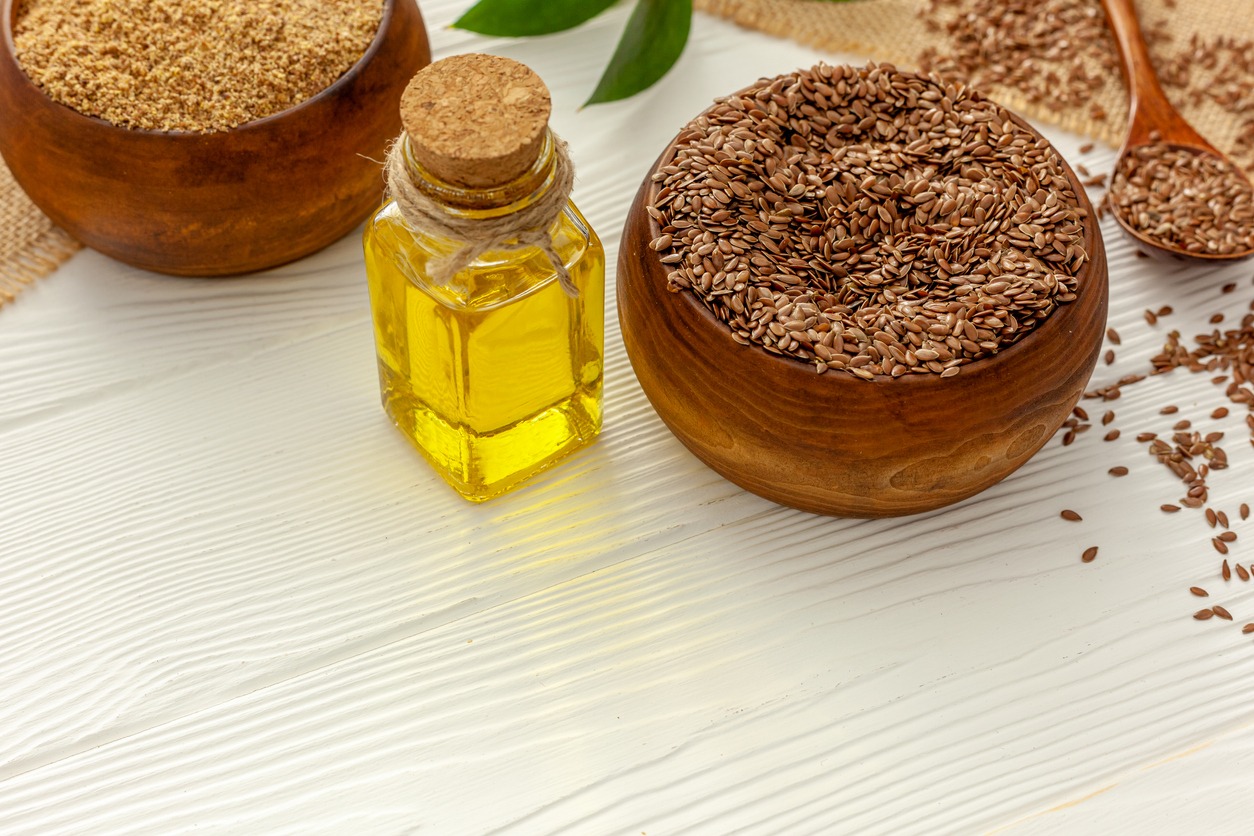Flaxseeds are one of the best raw superfoods that many people incorporate into their diets today. But long before it became the super seed that we know today, did you know that it was originally used to create textiles? In the present time, flaxseeds are considered a staple in the nutrition world, because it is known as an excellent source of healthy omega-3 fatty acids and as well as fiber.
If you are also thinking of incorporating these little seeds into your diet and you want to know more about it, you’re in the right place. Today, we are going to tell you more about flaxseeds, what it is, where it came from, and as well as the health benefits that it offers, being one of the best raw superfoods out there.
What are Flaxseeds and Where Do They Come From?

Flaxseeds are little seeds that come from the flax plant with the scientific name Linum usitatissimum. This plant can grow about 2 feet tall and was likely first grown in Egypt and has been cultivated all around the world.
The flax plant has strong fibers that can be woven into linen. In fact, these fibers are two to three times as strong as cotton. When it was first introduced in North America, it was originally grown to produce clothes. However, in the mid-20th century, cotton became more popular in the United States when it comes to choosing fiber for clothes. That’s why today, most places in North America that grow flax plants only do so to produce seeds.
Flaxseeds are nutty-tasting seeds that can be eaten raw or crushed and cold-pressed to produce flaxseed oil. For many years, it has been common to see flaxseed added to foods, such as bread and cereals. People have been aware of its many health benefits, that’s why a lot of people today have been incorporating these seeds into their diets. They are even sometimes added into pet’s food, as well.
Health Benefits of Flaxseeds
After knowing what flaxseeds are and where they come from, here are the different health benefits that you can get from flaxseeds.
-
Flaxseeds are rich in omega-3 fatty acids.
Flaxseeds are filled with a plant-based type of omega-3 fatty acid known as alpha-linolenic acid or ALA. This fatty acid has been tied to improved circulation and as well as anti-inflammatory effects. Based on research, these fats can also help in fighting osteoporosis by helping reduce the risk of bone fractures. Aside from that, it also offers modest protection against type 2 diabetes.
-
Flaxseeds are also filled with fiber, protein, and other vitamins.
Two tablespoons of flaxseeds have 6 grams of fiber, which is about a quarter of the recommended daily intake. It also has 4 to 5 grams of plant protein and 10% to 20% of the daily target for several nutrients, such as copper, thiamin, magnesium, phosphorus, and manganese.
Magnesium can help improve sleep, while manganese can help in collagen production and also promotes skin and bone health. Phosphorus can help in forming cell structures and can also support bone health. Copper also helps with collagen production, and it is also involved with energy and in making red blood cells that carry oxygen throughout the body. Thiamin is also involved in energy production and also supports the nervous system.
-
Flaxseeds are high in potent antioxidants.
Flaxseeds are a top source of health-protective antioxidants known as polyphenols. They are believed to protect people against heart disease and cancer. They can also fight cell-damaging oxidative stress. This means that flaxseeds may help fend off premature aging and as well as neurodegenerative diseases, like Parkinson’s and Alzheimer’s.
-
Flaxseeds are good for the heart in many ways.
As mentioned earlier, flaxseeds contain good fats, and these fats may also help in reducing blood pressure, prevent strokes, stave off artery hardening, and as well as lower bad cholesterol or LDL. Based on one study in people with high cholesterol levels, it found out that the consumption of three tablespoons of flaxseed powder every day for three months was able to reduce the bad cholesterol by almost 20%. And it also lowered the total cholesterol by over 15%.
-
The fiber in flaxseeds can also aid digestion.
Flaxseeds contain soluble fiber and insoluble fiber. Soluble fiber can help soften stool for it to pass through the GI tracts and be eliminated easily. Insoluble fiber, on the other hand, helps in stimulating the digestive system to move waste through the gut and promote regular bowel movement. Since flaxseeds have these two kinds of fiber, they work together to support digestive health.
-
Flaxseeds can help in lowering the risk of diabetes.
Flaxseeds contain lignans that are also linked to improved levels of HA1C, which is a measure of average blood sugar over three months. This means that flaxseeds can help in lowering diabetes risk in other ways, too. In one study, people were given 0g, 13g, and 26g of flaxseeds daily for 12 weeks. All of these people had prediabetes, and some are obese men and post-menopausal overweight women. Those who consumed 13g of flaxseed daily had lower blood sugar and insulin levels. They also have improved insulin sensitivity at the end of the study.
-
Flaxseeds may aid in weight loss.
Most of the soluble fiber that flaxseeds contain is mucilage. This fiber mixes with water to form a gel-like consistency, which helps in slowing down the emptying of the stomach. This can cause an increased feeling of fullness, delaying the return of hunger.
These are some of the best health benefits that you can get from eating flaxseeds. They are indeed nutritious raw superfoods that you can incorporate into your diet to become healthier. The next time you look for healthy ingredients to add to your meal or healthy foods to eat as a snack, try flaxseeds and see what it can do for you.